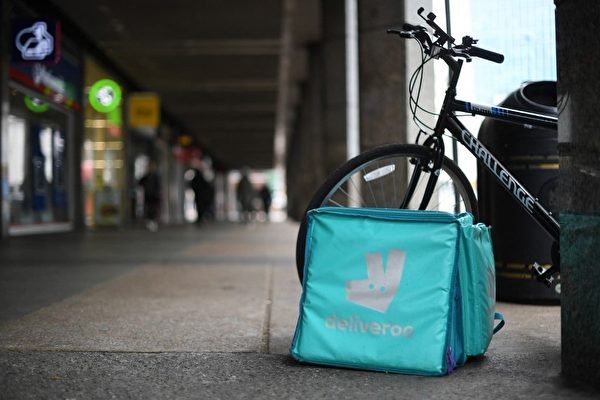【Epoch Times December 19, 2024】Zheng Yonghua, originally from Dongguan, Guangdong, now residing in the San Francisco Bay Area of the United States, is 34 years old this year. During the period of China’s COVID-19 lockdown from 2020 to 2022, he worked as a delivery driver in Nanjing, Guangzhou, and other places. Recently, he shared with the media his experiences as a “delivery guy” during the Chinese Communist Party’s lockdown and his tactics of “guerrilla warfare” against the authorities.
In an interview with Radio Free Asia on the 18th, Zheng Yonghua recounted his experiences. In January 2020, while working as a delivery driver in Nanjing, he felt the terrifying atmosphere caused by the outbreak of the COVID-19 pandemic. He described how the fear was palpable, with empty streets and only delivery workers seen everywhere. In the residential areas, due to the presence of military forces in Nanjing, there were armed police guards who were very strict.
Soon after, Zheng Yonghua returned to Guangdong, first landing in Shenzhen by plane and then being picked up by a friend back to Dongguan. When he first arrived in Guangdong, he didn’t feel the same level of fear as in Nanjing. He started delivering in Dongguan and spent about two years in Guangzhou.
While in Guangzhou, Zheng Yonghua continued working as a delivery driver, living in rented accommodations in the villages of Tangxia, Xiaozhou, and Tangdong. He felt that Guangzhou’s lockdown policies were not as strict as in Nanjing but he still faced a series of confrontations with the authorities over the lockdown measures. According to him, many people don’t know how to deal with the Communist Party, but he has his own methods and has to find alternative ways to resist.
Zheng Yonghua mentioned that the villages he lived in had been locked down multiple times, but he would simply leave when it happened. He revealed that even though the streets were blocked off, he found ways to bypass the restrictions by creating small openings in the barriers.
He described a warning signal that precedes each lockdown: “Usually it happens in the early hours of the morning, very few people are aware. Since I stay out at night and go to places like Zhujiang New Town, I know that if suddenly there are many guards, there’s definitely a problem.”
The term “guards” refers to security personnel hired by the village. Whenever Zheng Yonghua noticed an increased security presence, he would make his escape. Sometimes, he would leave without taking any belongings, as he kept valuable items in his hometown in Dongguan. He mentioned leaving his electric scooter outside or temporarily leaving it in the village during a lockdown, only to retrieve it once the situation eased.
He talked about the difficulty of leaving a locked-down village, saying that even security guards he knew couldn’t allow him to leave due to the Communist Party’s strict regulations. He criticized this as a remnant of the Cultural Revolution era.
As for escaping the village, Zheng Yonghua had his own method: “If you deliver to many places, you’ll find paths that not even the guards are aware of. You have to think outside the box to find a way out, not using conventional methods.”
He couldn’t recall how many times he had escaped from locked-down villages. Whenever a village was sealed off, he would head back to Dongguan and monitor the news. If Guangzhou wasn’t under lockdown, he would return there.
Discussing the change in business for delivery drivers during the pandemic lockdown years, Zheng Yonghua said, “In the past two or three years, the business went from good to bad. Initially, it was fine, but later on, many people lost their jobs and started working in delivery because it requires minimal investment.”
He mentioned the decreased income for delivery drivers after the business environment deteriorated: “If you ask any delivery guy on the street, they will tell you that the earnings have significantly dropped. Previously, a delivery might have been around 6 yuan, but now it’s just over 3 yuan, yet many still deliver.”
After conversing with his peers, Zheng Yonghua found out that before the pandemic, deliveries during certain hours could earn up to 200 yuan. However, after the lockdown, earnings dwindled to just over 100 yuan during those same hours.
Zheng Yonghua pointed out that during lockdown, the most affected were the migrant workers living in the villages.
He explained that his resistance against the authorities’ lockdown policies stemmed from his belief that the rules of the CCP were illegitimate. He criticized the system, stating that none of the laws were democratically approved and he questioned the legitimacy of the representatives in the People’s Congress.

